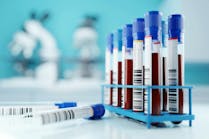Researchers at UT Southwestern Medical Center have identified a novel parameter of T cells that could help oncologists anticipate which patients would be most likely to develop immunotherapy toxicity. The findings, published in the Journal for ImmunoTherapy of Cancer, could lead to improved treatments for a variety of cancers.
The tolerant fraction represents the proportion of T cells — white blood cells that are primarily responsible for immune responses — not expected to attack normal cells or tissues. To develop and test this parameter, UTSW researchers profiled the receptors of T cells in 77 patients treated with immunotherapy. They also used publicly available data from patients with autoimmune disease and 786 healthy subjects.
“When we compared the new metric to previously studied parameters, the tolerant fraction predicted future immunotherapy toxicity more accurately,” noted Dr. Gerber, who is also a member of UTSW’s Harold C. Simmons Comprehensive Cancer Center. “Patients with a higher percentage of tolerant T cells appear less likely to develop an irAE.”





